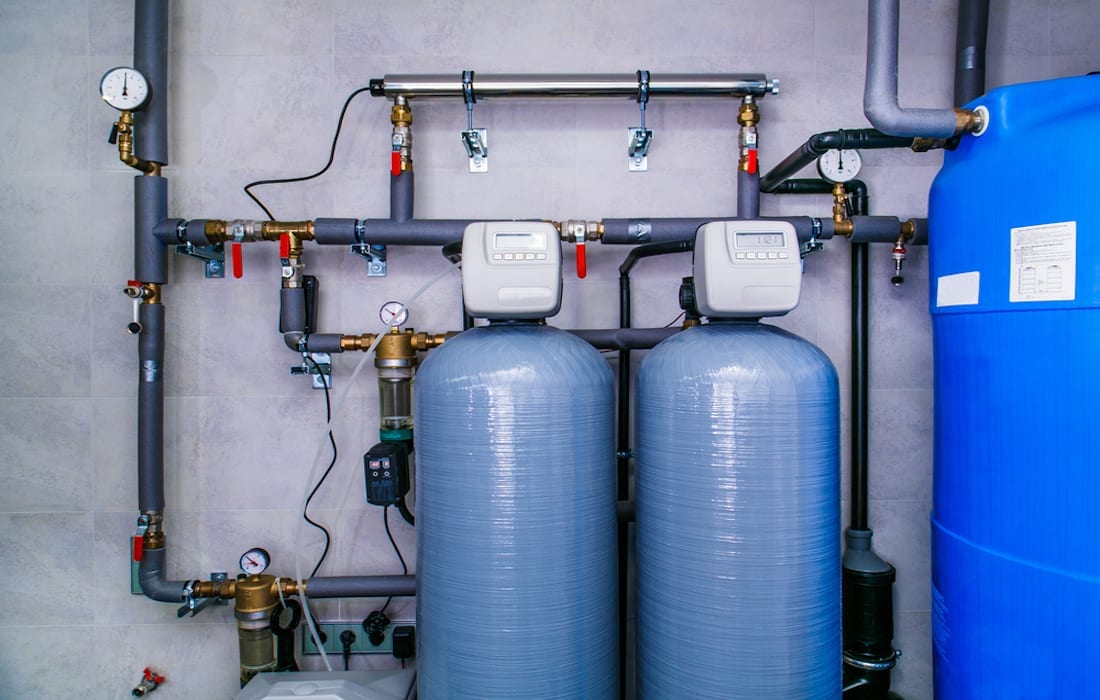Water is a fundamental resource for our daily activities, from cooking and cleaning to bathing and laundry. However, the quality of water can significantly impact our appliances, plumbing, and even our health. Hard water, characterized by high levels of calcium and magnesium minerals, can lead to various issues. Water softeners provide an effective solution to combat the problems associated with hard water, offering numerous benefits for households. In this comprehensive guide, we will explore the intricacies of water softeners, from their functioning to choosing the right one for your needs.
What is Hard Water?
Hard water is defined by its elevated mineral content, primarily consisting of calcium and magnesium ions. These minerals can accumulate in plumbing systems and household appliances, resulting in limescale deposits.
The presence of hard water can also affect the efficacy of soaps and detergents, leading to increased consumption.
How Do Water Softeners Work?
Water softeners utilize a process called ion exchange to remove calcium and magnesium ions from water. Through resin beads in the softener tank, these minerals are replaced with sodium ions.
This exchange effectively softens the water, preventing the formation of scale and alleviating the issues associated with hard water.
Benefits of Water Softeners:
- Protection for Plumbing and Appliances: Water softeners help prevent the accumulation of limescale in pipes and appliances, extending their lifespan and maintaining optimal performance.
- Energy Efficiency: By reducing scale buildup in water heaters, water softeners enhance their efficiency, leading to energy savings and lower utility bills.
- Cost Savings: With softened water, you’ll find that you need less soap and detergent for cleaning and laundry, resulting in long-term cost savings.
Choosing the Right Water Softener:
When selecting a water softener, it’s crucial to consider factors such as the hardness of water in your area, the size of your household, and the unit’s capacity.
Energy-efficient models with low maintenance requirements are often preferred for long-term satisfaction.
Installation and Maintenance:
While some homeowners may choose to install water softeners themselves, professional installation is recommended to ensure optimal performance.
Regular maintenance involves adding salt to the brine tank and periodic cleaning of the resin beads to maintain efficiency.
Salt-Based vs. Salt-Free Water Softeners:
Salt-based water softeners use ion exchange with sodium, while salt-free systems employ alternative technologies like template-assisted crystallization.
Salt-free systems are gaining popularity, especially for those on low-sodium diets.
Environmental Considerations:
Despite their benefits, traditional water softeners can have environmental drawbacks due to the discharge of salty brine.
Some newer models come with eco-friendly features, such as more efficient regeneration cycles and reduced salt usage, minimizing their impact on the environment.
Common Myths About Water Softeners:
- Myth: Water softeners make water too salty for consumption.
- Fact: The sodium content in softened water is generally within acceptable levels for drinking.
- Myth: Softened water feels slippery.
- Fact: While the texture may differ from hard water, softened water is not slimy or slippery but rather leaves a clean and refreshing feel.
FAQs:
Q1: Can I drink water softened by a water softener?
A: Yes, the sodium content in softened water is generally within acceptable levels for drinking.
Q2: Does water softening remove essential minerals from water?
A: Yes, but the amounts are minimal and not a significant source of essential minerals for human health.
Q3: Can I use softened water for watering plants?
A: Yes, but moderation is key to prevent excessive sodium in the soil, which could impact plant growth.
Q4: How do water softeners affect energy efficiency?
A: Water softeners reduce scale buildup in water heaters, improving efficiency and leading to energy savings.
Q5: Are there eco-friendly water softener options?
A: Yes, some models come with features like efficient regeneration cycles and reduced salt usage, minimizing environmental impact.
Q6: Do water softeners make water feel slippery?
A: While the texture may differ from hard water, softened water is not slimy or slippery but leaves a clean and refreshing feel.
Q7: How often should I add salt to the water softener?
A: Regularly check and add salt to the brine tank as needed, typically every 4-6 weeks depending on water usage.
Q8: Can I install a water softener myself?
A: While DIY installation is possible, professional installation is recommended for optimal performance.
Q9: Are there alternatives to salt-based water softeners?
A: Yes, salt-free water softeners use alternative technologies like template-assisted crystallization.
Q10: What factors should I consider when choosing a water softener?
A: Consider water hardness, household size, energy efficiency, and maintenance requirements when selecting a water softener.
Conclusion:
In conclusion, understanding water softeners is essential for maintaining the quality of water in your home. By grasping the basics of hard water, the mechanics of water softeners, and the various considerations when choosing one, you can make informed decisions for your household’s well-being. Always factor in your specific needs, environmental concerns, and long-term sustainability when selecting and maintaining a water softener system. With the right knowledge, you can enjoy the benefits of softened water, ensuring the longevity of your appliances and the overall health of your home.

A group of home improvement enthusiasts and bathroom design experts, combines in-depth knowledge and a shared passion to deliver engaging, informative content that guides readers through the world of bathroom innovation and style.

Leave a Reply